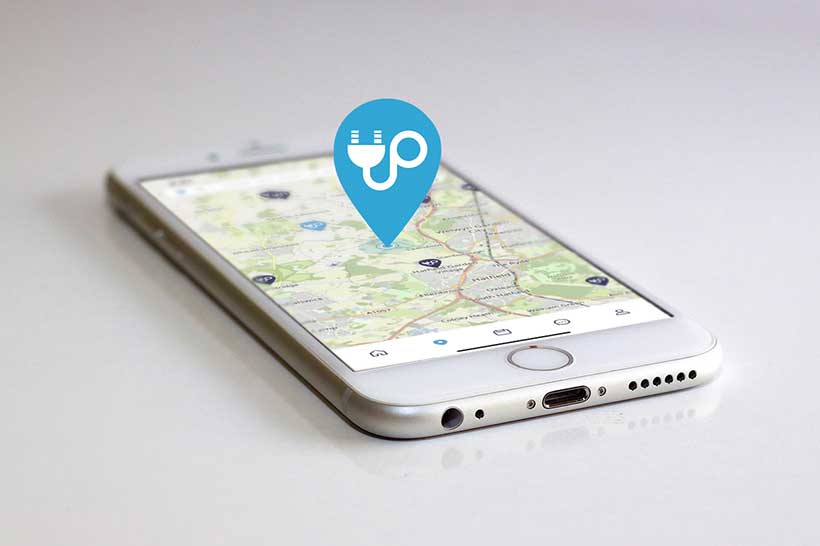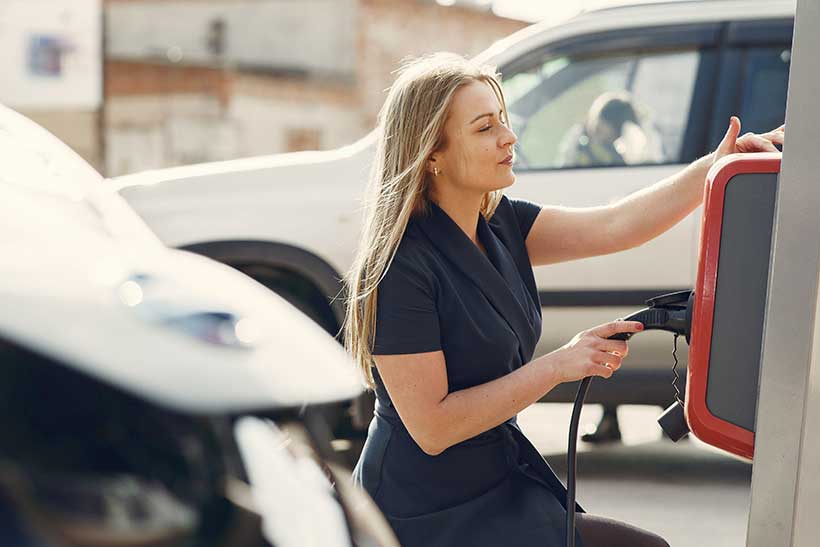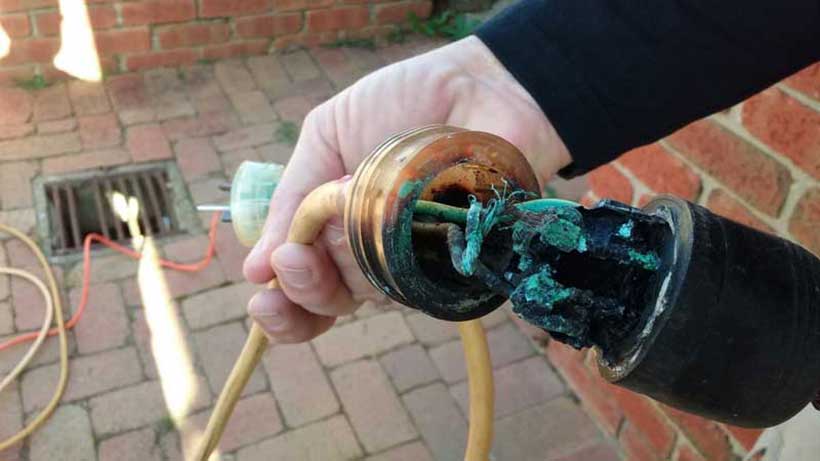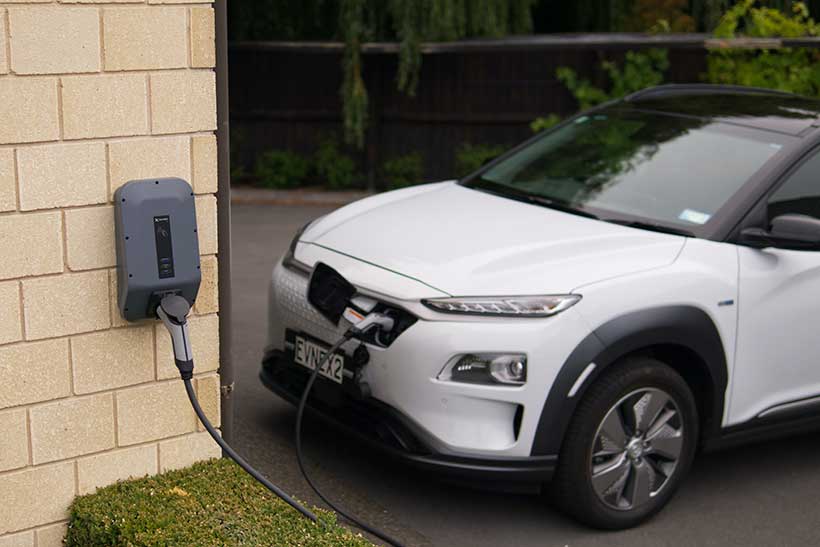Charger sharing has the potential to help increase the rate of EV uptake and fill the gaping hole in the public charging infrastructure.
It’s a fairly recent concept, but the idea is quickly gaining popularity.
It comes with many perks, most notably financial, as it’s a great passive income generator.
Whether your reasons to share your home EV charger are to help others switch to a zero emissions vehicle, make some extra income, or generally see this as part of the new era in car ownership, it’s making a positive impact.
With more and more domestic electric car charge-points becoming available across numerous countries, are we seeing a quiet revolution in the way we travel unfold?
Article Chapters
What is EV Charger Sharing?
EV charger sharing, also known as community charging or peer-to-peer charging, is a concept that’s been around for a few years now.
In short, the owner of a residential home EV charger rents their chargepoint to other drivers to charge their electric vehicle in return for a fee.
Essentially, it’s about people helping each other out, and there are many reasons why this concept could become the new normal very quickly.
How Does EV Charger Sharing Work?

A charger sharing session is booked and paid for using an app like Joosup.
Everything is pretty much automated, apart from getting to the location and plugging the car in of course!
The app takes care of everything, from finding a nearby “host”, to booking a suitable charging time slot, to taking payment.
Both parties need to have the app installed.
And the great thing about the Joosup app is you can be a host and a driver using a single account.
So you can rent out your charger to other Joosup members to make an income, whilst charging your own car at other Joosup locations during your travels.
It’s the ultimate mutual back scratching arrangement in the EV community.
Charger sharing apps like this are ideal for people who have no driveway and no way to charge.
It’s also perfect for people who travel often and go to places where the public charging infrastructure is simply inadequate.
If the world is going to switch to electric, this is the answer to many stumbling blocks.
Reasons to Start EV Charger Sharing

There’s a whole world of reasons to share your charger with other EV drivers.
Some are fairly obvious and straightforward to understand.
But there’s a few other perks that may make you pause for thought:
1. Make an Income
First and foremost, renting out your EV charger means making money.
You decide exactly how much you want to charge per hour to cover your costs and make a profit.
So you have complete control to ensure you cover your electricity bills, even when energy tariffs are seemingly skyrocketing,
And if you’re happy to allow EV drivers to park up and charge on your drive unattended, sharing your charger involves practically zero effort.
So you make an income without having to lift a finger – apart from using the app of course!
2. Increase EV Uptake
Most EV drivers made the switch because they wanted to help reduce emissions and live a greener life.
But for some, making the transition might not be quite so easy.
Not every home has a driveway to install an EV charger.
So there’s a lot of people out there who undoubtedly want to make the switch, but have no means to charge at home.
Sharing your charger can help people who live close to you make the switch to EV with greater confidence.
3. Eliminate Range Anxiety
Then there’s that old cliché “range anxiety”, which seems to always crop up when trying to convince petrol or diesel drivers to switch to electric.
What if I break down due to a flat battery and can’t charge anywhere?
The fact is, the more places there are to charge electric vehicles, the more likely people will make the switch.
If every homeowner in the UK shared their EV charge-point, the gap in public infrastructure could be solved practically overnight.
Just imagine being able to drive virtually anywhere, book a charging session at any destination, and literally turn up with your electrified parking space ready and waiting for you?
4. Reduce Carbon Footprint
Domestic transport is responsible for around 27% of the UK’s total emissions.
Practically all of that is produced by privately owned vehicles.
Sharing your charger will help to accelerate EV uptake and thus, reduce carbon emissions faster.
By decarbonising domestic transport, we can make our cities, towns and villages cleaner so much quicker.
5. Recoup Charger Installation Cost
Getting an EV charger installed isn’t cheap.
Many newer EV chargers can cost almost £1000.00 or more.
Add installation costs on top and you could easily be out of pocket by more than £1500.00 before you’ve even completed your first ever charge!
By renting out your home EV charger, you can recoup the costs of the charger far quicker.
Sticking to charging just your vehicles once or twice a week means it will take years to croup that investment.
6. Keep EV Running Costs Down
The price of energy in the UK is soaring, and only looks to get worse!
As a result, many well-known public rapid charging firms have increased prices by more than 20% since September 2021.
Although domestic energy bills are also rising, they’re still comparatively a lot cheaper.
By sharing your charger, you’re helping to keep other EV driver’s running costs down, and make owning an electric vehicle even more attractive.
Furthermore, it now costs over a whopping £100.00 to fill up some petrol and diesel engine vehicles!
In comparison, filling up an EV only costs a fraction of that.
7. Prolongs Battery Life
Many EV drivers are unaware they shouldn’t use rapid chargers too often when recharging their vehicles.
Rapid chargers run on DC (instead of AC), at a very high wattage, so your battery is taking on a very large current in a short space of time.
Repeatedly charging an EV this way could deteriorate your EV battery and reduce its charging capacity.
By switching to destination “top up” charging using shared charge-points (which run on AC), EV batteries will last far longer.
This means our EV’s will surpass their expected lifespan and give many more years of driving pleasure.
8. Help Others Out
It’s common knowledge in the EV community that nothing gives us more pleasure than to help convince others to make the switch to electric.
Whilst us early adopters were more than happy to take the leap of faith when electric vehicles first became available, the late adopters are those who’ll be the hardest to convince.
If sharing our chargers helps them realise that switching to electric is far easier than they thought, the sooner they’ll make the jump.
Pitfalls of EV Charger Sharing

Whilst the idea of charger sharing does seem very attractive, there are a few concerns to bare in mind.
Without doubt the benefits outweigh the pitfalls.
But before you decide to go ahead, make sure you’re aware of a few potential stumbling blocks.
Sharing Your Driveway
Renting your charger means having strangers park on your driveway, potentially for many hours at a stretch.
So make sure you’re comfortable with the idea of someone parking their car at your home and using your charger.
Also, make sure your neighbours know you’re charger sharing.
You don’t want them calling the police when they see a stranger’s vehicle charging on your premises!
Dealing with Strangers
Whilst most people are decent law abiding citizens, there’s always a few bad eggs.
Renting your charger means allowing strangers to park at your home.
And if you prefer to be in attendance during charging, you’ll have to deal with them directly.
So if you’re uncomfortable with this idea, perhaps charger sharing is not for you.
Potential Charger Damage
Although this is rarely heard of, potential damage to your EV charger through accidental misuse or wear and tear is a possibility.
Your charger cables could get damaged, the plug could get broken or the unit could come loose from the wall.
These are all possibilities, but as mentioned, quite rare.
If damage does occur, there’s the question of who’s liable?
And does home insurance cover any breakages?
An untethered EV charger would help reduce this concern, as EV owners would need to bring along their own cable.
But if your charger is tethered, you need others to use it responsibly.
Conclusion
Charger sharing is the ultimate win-win situation for everyone in the EV community.
If you own a charger, you can pay it off quicker and make a solid income from renting it out.
As a driver, having a wider choice of places to park and charge is the dream ticket.
The fact is, owning and refueling an EV is nothing like a petrol or diesel vehicle.
So if the big switch to electric is going to happen, we’re going to need to rethink and reprogram the way we drive fully charged cars.
By switching our thought processes to point-to-point top up destination charging, we can make it happen.
It’s an adjustment, but ultimately, a small and easy one to make.
Charger sharing is the answer and with apps like Joosup, we can make it happen.

